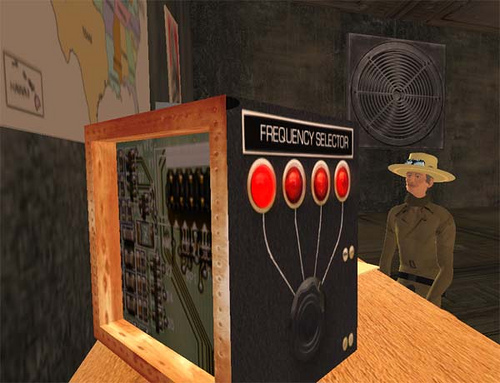Spectrum Reassignment Proposal Stirs Range of Issues
WASHINGTON: The proposal to open broadcast spectrum up for wireless broadband is reverberating beyond TV stations. With just a few days left to weigh in on the federal government’s plan, those potentially affected by it are registering concerns. Dish Network, for example.

“Dish believes that the commission’s efforts to improve the utilization of the broadcast television bands should not disrupt the clear scope of the statutory carry-one, carry-all requirements, nor undermine the careful investments satellite television providers have made in their distribution networks,” the satellite TV provider’s reply comments state.
The law passed last year extending the rules of TV station carriage by satellite operators required Dish to carry local channels in all 210 U.S. designated market areas. In return, Dish got to shake off an injunction preventing it from carrying distant signals. Dish added satellite capacity and complied. Now the carrier fears that if TV stations end up sharing channels, as proposed by the Federal Communications Commission, it would artificially create new stations that could demand carriage.
Englewood, Colo.-based Dish is also concerned that channel-sharing arrangements would change distant-signal programming rights. DBS operators can now carry out-of-market network affiliate TV station signals where in-market ones do not reach. If two adjacent-market affiliates share a channel, Dish reasons, the distant-signal provision feasibly can go out the window. Dish advocates a suggestion by DirecTV to grandfather in existing distant-signal subscribers.
The FCC’s Notice of Proposed Rulemaking to redesignate broadcast spectrum endorsed channel-sharing, where two stations would share one 6 MHz license. It also proposed improving reception in the VHF bands--Chs. 2-13, including setting indoor antenna performance standards.
RadioShack said no thank you to that. The FCC does not have the authority to set standards and should let market forces prevail, the Forth Worth, Texas electronics retailer said.
“Mandatory antenna standards would force manufacturers to make and retailers to sell antennas that most antenna-users do not need for over-the-air television reception,” the Shack’s filing said.
Melbourne, Fla. broadcast vendor Harris Corp. went to bat for TV stations in conjunction with its own interests. Harris took FCC Commissioner Meredith Atwell Baker and her legal advisor, Jennifer Tatel, on a tour of the company’s booth at the 2011 NAB Show, where it demoed its Mobile DTV technology, among others.
Harris said it “reiterated how broadcast equipment manufacturers are continuously innovating and exploring ways to implement greater efficiencies in broadcast equipment in order to maximize the power of the Advanced Television System Committee’s DTV Standards and broadcasters’ use of bandwidth. Conclusions regarding broadcasters’ bandwidth needs must be informed and not only based on their current requirements, but also on their future spectral needs.
“Broadcasters should not be foreclosed from both maintaining their current level of service and providing new services, such as MDTV, 3DTV, and non real-time services.”
The last day to file reply comments on the FCC’s spectrum reallocation docket, No. 10-235, is Monday.
~ Deborah D. McAdams
The professional video industry's #1 source for news, trends and product and tech information. Sign up below.
